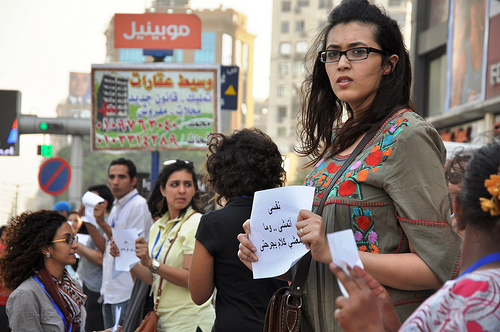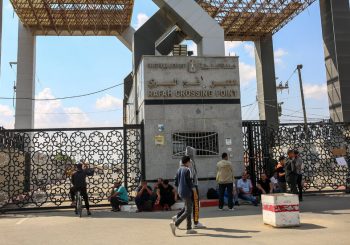The following is a collection of interviews with various Egyptians. All names used are simply aliases for privacy purposes.
Sarah: A Coptic University Student
This interview is an insight into the life of a female Christian student living in Cairo.

First of all, what has changed for you since the revolution?
“How is everything? Well…nothing has changed. If there has been change, it has been for the worse. Not many people have benefited from the revolution. The rich are still rich and the poor are still poor.”
There have been many reports of an increase in sexual harassment. Have you felt such an increase personally?
“I think the numbers are a little exaggerated, but then again a lot [of sexual harassment] happens. My parents don’t want me staying out as late as I used to be able to. I haven’t personally experienced anything different apart from the common remarks or stares from men…especially at the mall!”
What about as a Christian? From the attacks in Alexandria shortly before the revolution to the Imbaba incident, there has definitely been some sectarian tension.
“The attacks are regrettable as they don’t represent how the majority of Egyptians feel. I have never been attacked for being a Christian and have many Muslim friends. But the situation in poor towns is different where families often clash over land disputes and are driven by rumors such as a Muslim girl falling for a Christian man or vice-versa. It is a shame that it happens, but I blame it on the economic conditions of these towns as opposed to religion.”

What are your hopes for Egypt’s future?
“The rights of women are important areas that need immediate attention. From a lack of education and influence of extremists we have reached a point where women are continually abused. My hopes are that women are able to live their lives as they wish, whether it’s being able to walk down Cairo’s streets without being harassed, or having equal job opportunities.”
Amr: An Egyptian Taxi Driver (2010)
This interview is on the high unemployment in Egypt which is currently at 12.4% and at 24.8% for those aged 15-24. It is important to note that education in Egypt – including tertiary education – is free.
Did you choose to be a taxi driver, or did other circumstances lead to you becoming one?
“I have a degree in Engineering, but could not find a job. You see many people have degrees in Egypt, but there are not enough jobs for all of us. So my uncle recommended I be a taxi driver and helped me out at first. Here I am.”

How did your family feel about that?
“My parents kept pushing me to get married. Marriage is important in Egypt…once you are in your twenties, that is all your parents talk about. One year after graduating I got married. This job is the only way I can provide for my family and my little boy. “
What were your dreams? Or what do you still hope to accomplish?
“I always wanted to go overseas…somewhere like Germany. The quality of life in Egypt compared to abroad is very bad. I dreamt that I would be able to get a job here in Egypt and then a few years later move overseas where I would meet a nice German girl and settle down. Of course dreams change. Now my only dream is to be able to take care of my family and provide them with a stable life.”







Comments (3)
Australians only get the little news that the major newspapers report such as A) French reporter sexually assaulted in Tahrir, or B) Elections blah blah win! But really, not many media outlets actually look into the lives of the people and go on the ground to cover the situation.
It’s interesting how so many people in the western world presume the revolution happened and then the Egyptians lived happily ever after. Most Australian’s wouldn’t have the slightest idea what was wrong in the first place, let alone how it may have been fixed by the ‘revolution’.